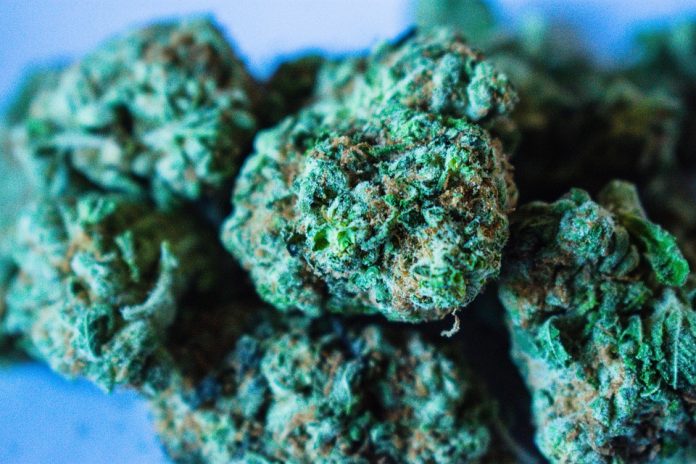U.S, January 25, 2021 (CANNABISAFICIONADO) THC may be best known as a euphoriant that delivers a psychoactive effect, it also offers a multitude of medicinal benefits.
Of the 113 cannabinoids that have been discovered in the cannabis herb, none is more infamous than tetrahydrocannabinol, or THC. Responsible for most of the psychoactivity and euphoria of cannabis, this cannabinoid does more than merely give suburban soccer moms a modicum of stress relief and college students ravenous munchies.
With all due respect to the molecules caffeine and ethanol, probably no other molecule in the history of humanity has been as misunderstood, stigmatized, or politicized as THC. From the reefer madness era of the late 1930s to the stereotype-laden films of Cheech and Chong in the 1970s to more recent movies like Pineapple Express (based on the name of a popular strain of cannabis), the truth about THC and its efficacy for humans often evades laypeople who consume content from only national media outlets.
The medicinal benefits of the molecule are numerous, ranging from relaxation and pain relief to appetite stimulation and sedation (great for insomniacs). Negative effects of this molecule include intense appetite stimulation (with predictable gastrointestinal consequences the following day), dry mouth, potential short-term memory impairment, paranoia and panic attacks (especially with sativa strains), and lethargy (typically in indica varieties).
The Details of THC
While THC may be best known as a euphoriant that delivers a psychoactive effect, it offers a multitude of medicinal benefits that far exceed the fabled “stoner” mannerisms of lethargy and forgetfulness. Despite its delivery of what is sometimes a potent euphoric effect (especially for new consumers), it is impossible to overdose on THC.
Assuming moderate and reasonable consumption levels, cannabis can serve as a positive lifestyle enhancement that delivers stress relief, mental wellness, improved energy levels, and even performance enhancement. Strains featuring relatively potent levels of THC include Blueberry, Ghost Train Haze, Master Kush, Trainwreck, and White Rhino.
Predicting the exact potency and efficacy of a particular strain of cannabis is difficult for a variety of reasons. For example, a theory called the Entourage Effect identifies how other cannabinoids and their aromatic cousins called terpenes can modify the effects of other cannabinoids and terpenes, including buffering or amplifying the effect or potency of THC.
One distinct characteristic of the molecule is tolerance building. While a subjective area of cannabis efficacy, tolerance building for daily consumers can be significant. To combat this problem, some indulge in a decades-long practice dubbed a tolerance break, during which they significantly decrease or cease consumption for between a few days and a week.
The Research on THC
A 2011 study conducted by cannabis research pioneer Dr. Ethan Russo entitled “Taming THC: Potential Cannabis Synergy and Phytocannabinoid-terpenoid Entourage Effects” and published in the British Journal of Pharmacology provides a critical overview of THC’s medical benefits.
Concluded Russo and his team, “THC is the most common phytocannabinoid in cannabis and…is a partial agonist at CB1 and cannabinoid receptor 2 (CB2),” pointing out the herb’s myriad medical applications, including “activities as a psychoactive agent, analgesic, muscle relaxant, and antispasmodic.”
Russo’s team concluded that THC also functions as a bronchodilator and neuroprotective antioxidant while featuring 20 times the anti-inflammatory power of aspirin and twice that of hydrocortisone.










